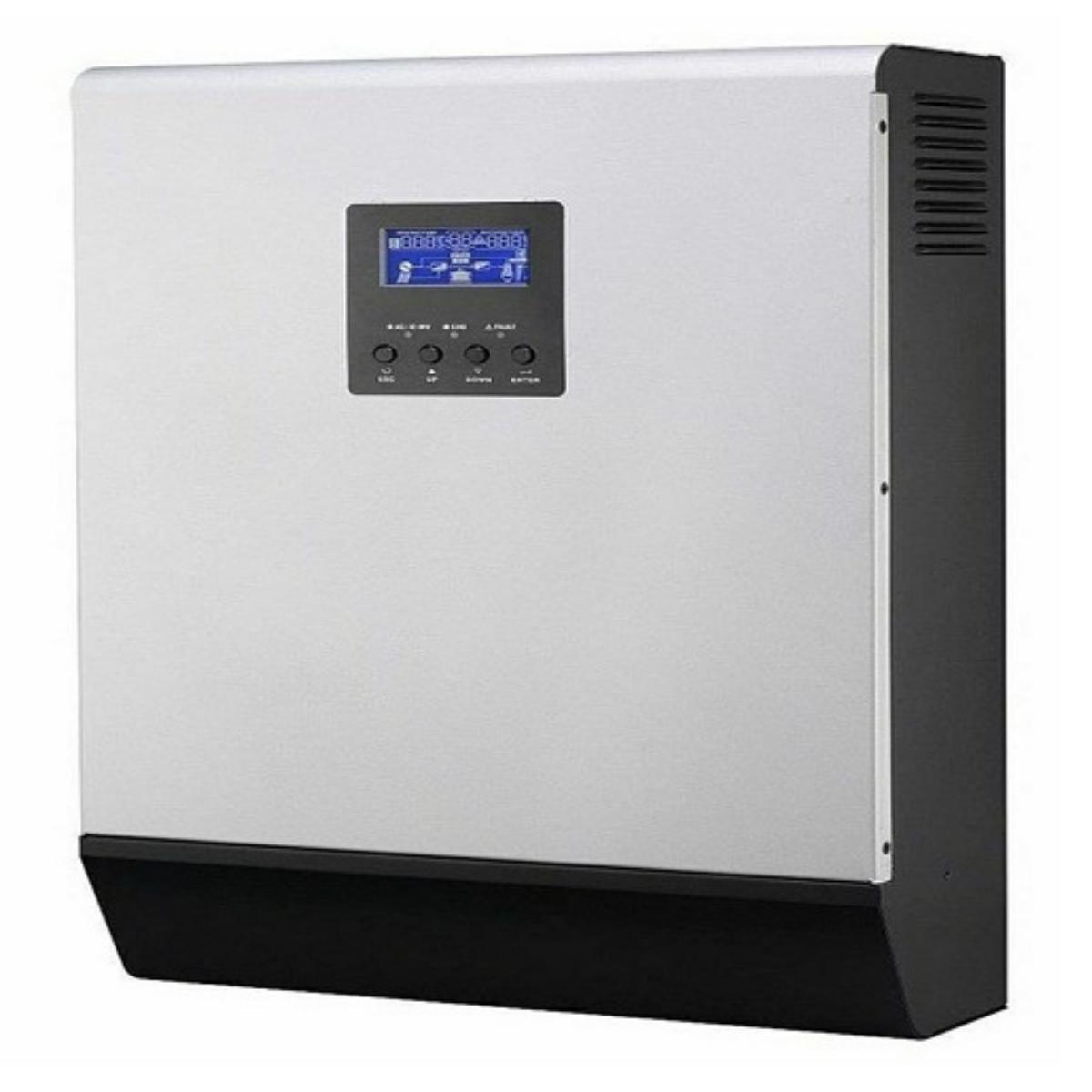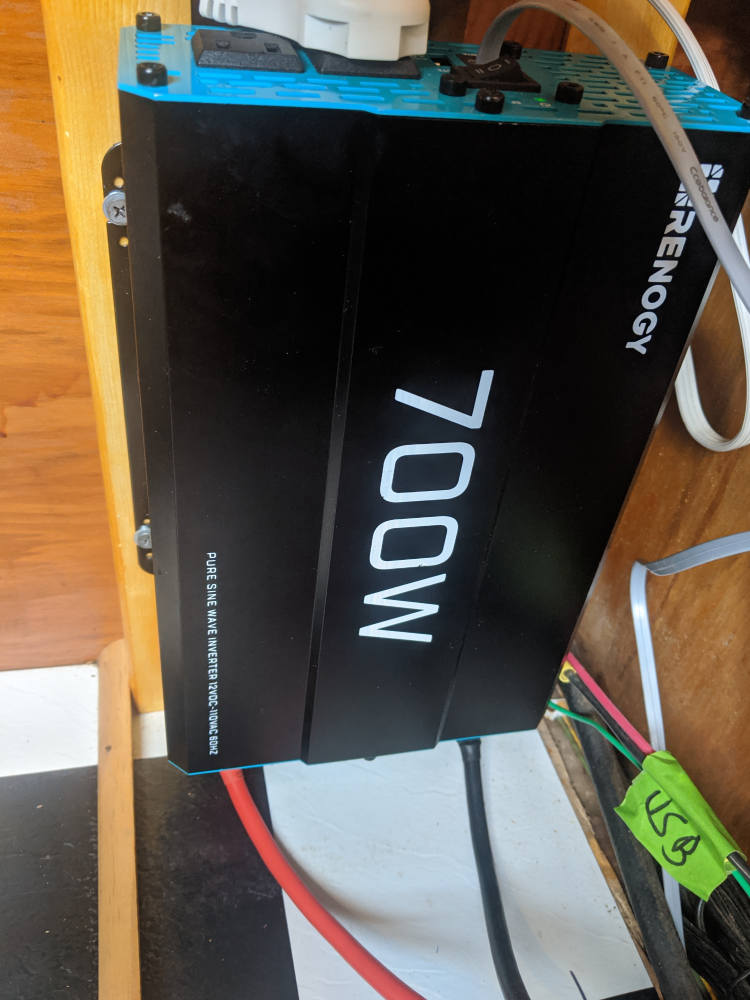One Of The Best Info About Why Is 48V Inverter Better Than 12V

12V Vs 24V 48V Van Electrical System Which Is Best For YOU?
Stepping Up the Voltage
Ever wondered why some folks are ditching the traditional 12V setup for something a little beefier? We're talking about 48V inverters, and the buzz around them isn't just hot air. They're gaining popularity in everything from solar power systems to electric vehicles, and for good reason. Let's dive into why bumping up the voltage can make a significant difference in performance and efficiency.
Think of it like this: imagine trying to water your garden with a tiny straw versus a garden hose. Both can get the job done, but one is significantly faster and requires less effort. A 48V system is like that garden hose, allowing for a greater flow of power with less resistance. It's all about efficiency, and who doesn't love saving a bit of energy (and money) in the long run?
So, whats the deal? Why are we even having this conversation? Simply put, as our energy demands increase — powering more devices, running larger appliances — the limitations of a 12V system become more apparent. Voltage drop, thicker wires, and inefficient energy transfer are just a few of the headaches that can plague a lower voltage setup. Enter the 48V inverter, promising a smoother, more powerful ride.
But before you jump ship entirely, lets explore the key advantages a 48V inverter offers over its 12V counterpart. We'll break it down in a way that's easy to understand, even if you're not an electrical engineer (because, let's be honest, most of us aren't!). Buckle up; it's time to get charged up about volts!
1. Reduced Current, Reduced Hassle
One of the most compelling reasons to opt for a 48V inverter is the significant reduction in current (amps). Remember Ohm's Law? Power (Watts) equals Voltage (Volts) multiplied by Current (Amps). So, for the same amount of power, a higher voltage means lower current. This seemingly simple change has some pretty impressive ripple effects.
Lower current translates directly into thinner wires. Thicker wires are not only expensive, but they're also heavier and more difficult to work with. Imagine trying to snake a garden hose through a tight space versus a thin rope; the rope wins every time. Thinner wires also mean easier installation, especially in confined spaces like RVs or boats. Less hassle, lower cost, and a cleaner installation — what's not to love?
Another advantage of reduced current is minimized voltage drop. Voltage drop occurs when power is lost as it travels through the wires. The higher the current, the greater the voltage drop, which means less power reaches your appliances. A 48V system, with its lower current, experiences significantly less voltage drop, ensuring your devices receive the power they need without being starved.
Finally, lower current leads to reduced heat generation in the wires. Heat is wasted energy and can be a safety hazard. By reducing the current, a 48V system runs cooler and more efficiently, prolonging the lifespan of your system and minimizing the risk of overheating.

Inverter 48VDC Rated Power 5KW Kgashane Designs
Efficiency is the Name of the Game
When it comes to power conversion, efficiency is paramount. An inverter's job is to convert DC power (from batteries or solar panels) into AC power (the kind that runs your household appliances). The more efficiently it does this, the less energy is wasted, and the longer your batteries will last.
48V inverters generally boast higher efficiency ratings than their 12V counterparts. This is because the higher voltage reduces losses within the inverter itself. Think of it like a well-oiled machine; less friction means smoother operation and less energy wasted. Over time, these small efficiency gains can add up to significant savings on your energy bill and extend the lifespan of your battery bank.
Moreover, the higher voltage allows for more sophisticated and efficient inverter designs. Manufacturers can incorporate more advanced components and control algorithms, further optimizing performance and minimizing losses. This translates to a more reliable and robust system that can handle demanding loads with ease.
Essentially, choosing a 48V inverter is like opting for a fuel-efficient car over a gas-guzzler. Both will get you where you need to go, but one will do it with less wasted energy and lower running costs. And in the world of renewable energy, every little bit of efficiency counts.
2. More Power, Less Compromise
Let's talk about power handling capabilities. As your energy needs grow, a 12V system can quickly become a bottleneck. Trying to draw a large amount of power from a 12V source requires extremely high currents, which, as we've discussed, can lead to a whole host of problems.
A 48V system, on the other hand, can handle much larger power loads with ease. This makes it ideal for running power-hungry appliances like air conditioners, refrigerators, and power tools. You'll be able to run them without fear of overloading your system or experiencing excessive voltage drop. It's like having a bigger engine in your car — you'll be able to tow heavier loads without breaking a sweat.
This increased power capacity also opens up possibilities for expanding your system in the future. If you decide to add more solar panels or batteries, a 48V inverter will be much better equipped to handle the increased power flow. It gives you more flexibility and headroom to grow your energy system as your needs evolve.
So, if you anticipate needing a significant amount of power, or if you plan on expanding your system in the future, a 48V inverter is definitely worth considering. It offers a more robust and scalable solution that can keep up with your growing energy demands.

Why Is A 48V Inverter Better Than 12V? Leaptrend
Addressing the Concerns
Okay, so 48V inverters sound pretty great, right? But before you rush out and buy one, let's address some potential concerns. One common question is: "Are 48V systems more dangerous than 12V systems?" While it's true that higher voltages can pose a greater shock hazard, modern 48V systems are designed with safety in mind.
Properly installed and maintained 48V systems are generally considered safe. They incorporate safety features like fuses, circuit breakers, and ground fault protection to minimize the risk of electrical shock. However, it's always crucial to follow proper safety procedures when working with any electrical system, regardless of the voltage. If you're not comfortable working with electricity, it's best to hire a qualified electrician.
Another concern is the cost. 48V components, including inverters, batteries, and charge controllers, can sometimes be more expensive than their 12V counterparts. However, it's important to consider the long-term cost savings that can be achieved through increased efficiency and reduced wire size. Additionally, as 48V systems become more popular, prices are likely to come down.
Finally, compatibility can be an issue. Not all appliances and devices are designed to run on 48V power. You'll need to ensure that your chosen inverter is compatible with your existing equipment. However, most modern inverters offer a wide range of output voltages and frequencies, making them compatible with a variety of devices.
3. Making the Switch
Switching from a 12V to a 48V system is a significant upgrade that's really about future-proofing your power setup, and making sure things run smoother overall. If you're already dealing with a 12V system, transitioning might mean new batteries and possibly rewiring depending on your load requirements, so planning is key here.
First, think about your current and future power needs. Are you planning on adding more appliances, or possibly expanding your off-grid setup? A 48V system is going to be a lot more forgiving when you want to crank things up a notch. Look into components like batteries, inverters, and charge controllers to ensure they play nice together and meet your power demands. Don't skimp on quality; better gear will usually save you headaches down the line.
Installation-wise, if you're comfortable tackling electrical work and have the right tools, you might handle it yourself. But remember, safety first! Consider getting a pro electrician involved. They can spot potential issues and ensure everything is hooked up correctly, preventing any nasty surprises.
Finally, once you're up and running, don't forget about maintenance. Regularly check your batteries, keep your components clean, and monitor system performance to catch any early warning signs of trouble. By setting up and taking care of your 48V system properly, you're setting yourself up for reliable power that can keep up with your changing needs.

FAQ
Still scratching your head? Let's tackle some frequently asked questions to clear up any remaining confusion.
4. Q
A: Not at all! While 48V inverters are commonly used in larger solar installations, they're also suitable for smaller off-grid setups, RVs, boats, and even electric vehicles. The key is whether you need to handle a significant amount of power or plan on expanding your system in the future.
5. Q
A: Generally, no. It's best to keep your system voltage consistent to avoid compatibility issues and potential damage to your equipment. You can use a DC-DC converter to step down the 48V power to 12V for specific devices, but it's generally not recommended to mix and match voltages throughout the system.
6. Q
A: While individual 48V batteries may have a higher upfront cost, it's important to consider the overall system cost. A 48V system often requires fewer batteries to achieve the same energy storage capacity as a 12V system, which can offset the higher cost per battery. Additionally, 48V batteries may have a longer lifespan and better performance, leading to long-term cost savings.

Buy PowMr5500W Solar Inverter 48V DC To 220V230V AC, 5.5KW Pure Sine
